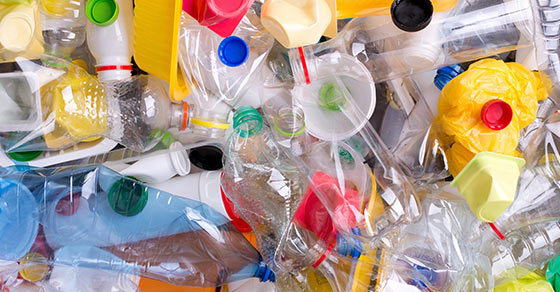Plastic pyrolysis has long been explored as a means of creating a circular economy around plastics, and as evidence mounts in favor of the technique, more and more organizations and government bodies are putting pen to paper, showing their support for it. In fact, a recent market study found the plastics-to-fuel market specifically could see a near-30% CAGR between 2020 and 2028.
As a leading provider of plastic pyrolysis kilns, we’re providing the following update on the current state of the plastic pyrolysis market, and where it could be headed.
Why the Push for Plastic Pyrolysis?
The pyrolysis of plastic is a form of advanced or chemical recycling, in which plastics are broken down into their most basic chemical compounds.
While many see plastic pyrolysis as an alternative to traditional recycling, pyrolysis actually fills a critical gap in waste management that mechanical recycling simply cannot meet. And with demand for plastics constantly on the rise, the world is in need of a more comprehensive approach to managing end-of-life plastics.
Mechanical recycling physically breaks down waste plastics, yielding a lower-quality, but still usable form of plastic. In contrast, pyrolysis chemically breaks plastics down into their original building blocks, essentially bringing them back to the start of their raw material journey. As a result, pyrolyzed plastics are not limited in their reuse potential like mechanically recycled plastics are (due to their lower quality); unlike mechanically recycled plastics, pyrolyzed plastics can be used in the creation of high-performance plastics for the medical, pharmaceutical, and food industries.
Further, as petroleum-based compounds, these recovered compounds can be processed for use as a fuel (in this case the practice is commonly referred to as plastics-to-fuel, or PTF technology), a valuable proposition, considering the ever-growing demand for more sustainably derived fuels.
On top of all of this, plastic pyrolysis is also a solution to some of our most challenging plastic wastes as well; widespread use of pyrolysis would allow for more types of plastic to be recycled. Further, since pyrolysis can handle large quantities of unsorted material, it would allow for higher quantities of plastic to be recycled as well.
With all of this considered, it’s easy to see why interest around plastic pyrolysis is growing.
What’s Happening to Push Plastic Pyrolysis
The urgency around managing plastics more sustainably was further compounded by the Covid-19 pandemic, which produced a flood of single-use plastics. And while plastics took a bit of a back seat during efforts to manage the pandemic, now more than ever, environmentalists, industry groups, and regulators are calling for a solution.
A recent IHS Markit analysis details how in order to ramp up efforts, a portion of investments slated for the production of new plastics could be redirected for additional mechanical and chemical recycling capacity.
Numerous projects are already in the works and continue to be announced all over the world, and not just start-ups – major chemical heavyweights are committing substantial resources to end plastics pollution.
ExxonMobil is currently working on several projects, with their first large-scale facility expected to be operational by the end of 2021.
Likewise, Shell recently announced a partnership with BlueAlp that will see the construction of two pyrolysis plants in the Netherlands.
Dow Chemical has also been pursuing plastic pyrolysis, and recently announced they’ll be offering their customers “fully circular polymers” by next year.
Progress is particularly strong in Europe, where high fuel costs and a greater emphasis on renewables are pushing demand for advanced recycling.
PlasticsEurope, a plastics industry association, recently announced their target of 30% recycled plastic in packaging applications by 2030, a target they say advanced recycling will be essential to meeting. The use of recycled plastics in the production of new products has shown to significantly reduce energy consumption, as well as greenhouse gas emissions.
In the US, things are a bit more complicated. In May, the Department of Energy announced funding up to $14.5 million for research and development around reducing plastic waste and the energy required to recycle more challenging forms of plastics. And while the US government has signaled that a circular plastics economy and alternative fuels are a priority, recently proposed legislation could potentially cripple the movement by holding the process to waste management standards many deem inappropriate for the true nature of advanced recycling. So far, 14 states in the US have passed legislation to encourage advanced recycling by recognizing the process as a manufacturing process, not a waste management one.
The US Plastics Pact, a group that brings various foundations and stakeholders together in a concerted effort to address plastic wastes, has set ambitious targets to meet by 2025:
- 100% plastic packaging will be reusable, recyclable, or compostable
- Recycle or compost 50% of plastic packaging
- Source an average of 30% of plastics from recycled or bio-based content
The group hopes their roadmap will inspire businesses and government bodies alike to take action on the issue.
Conclusion
As the pressing need to manage plastic wastes grows more urgent, more and more entities are turning to pyrolysis as a solution. And with benefits such as a greater acceptance of waste types, higher processing capacities, and the opportunity to produce high-quality plastic feedstocks, it’s easy to see why.
With over 70 years serving the chemical industry, FEECO is a preferred provider of custom rotary kilns for pyrolysis, as well as pilot-scale equipment for testing purposes, and an extensive parts and service program. For more information on our kilns or related services, contact us today!



